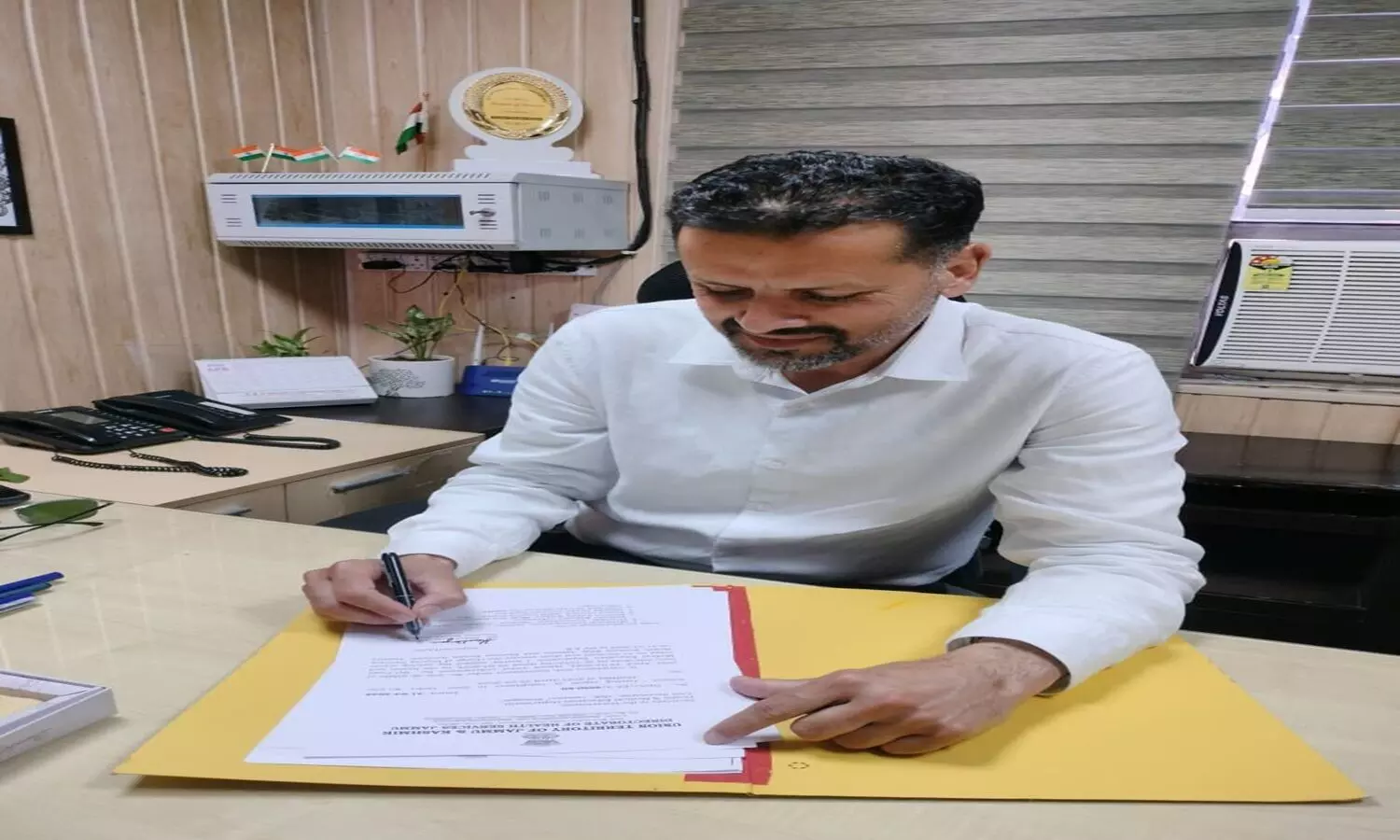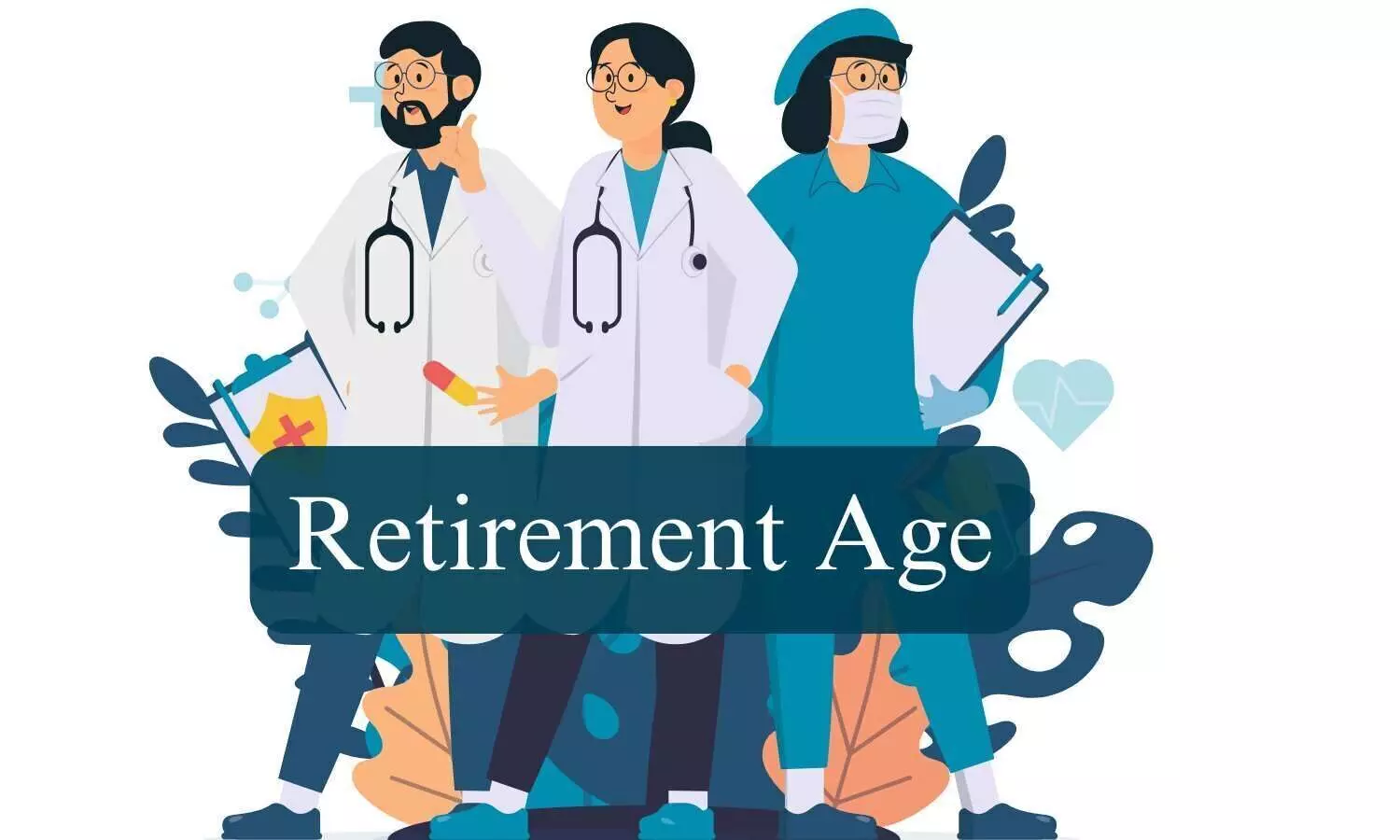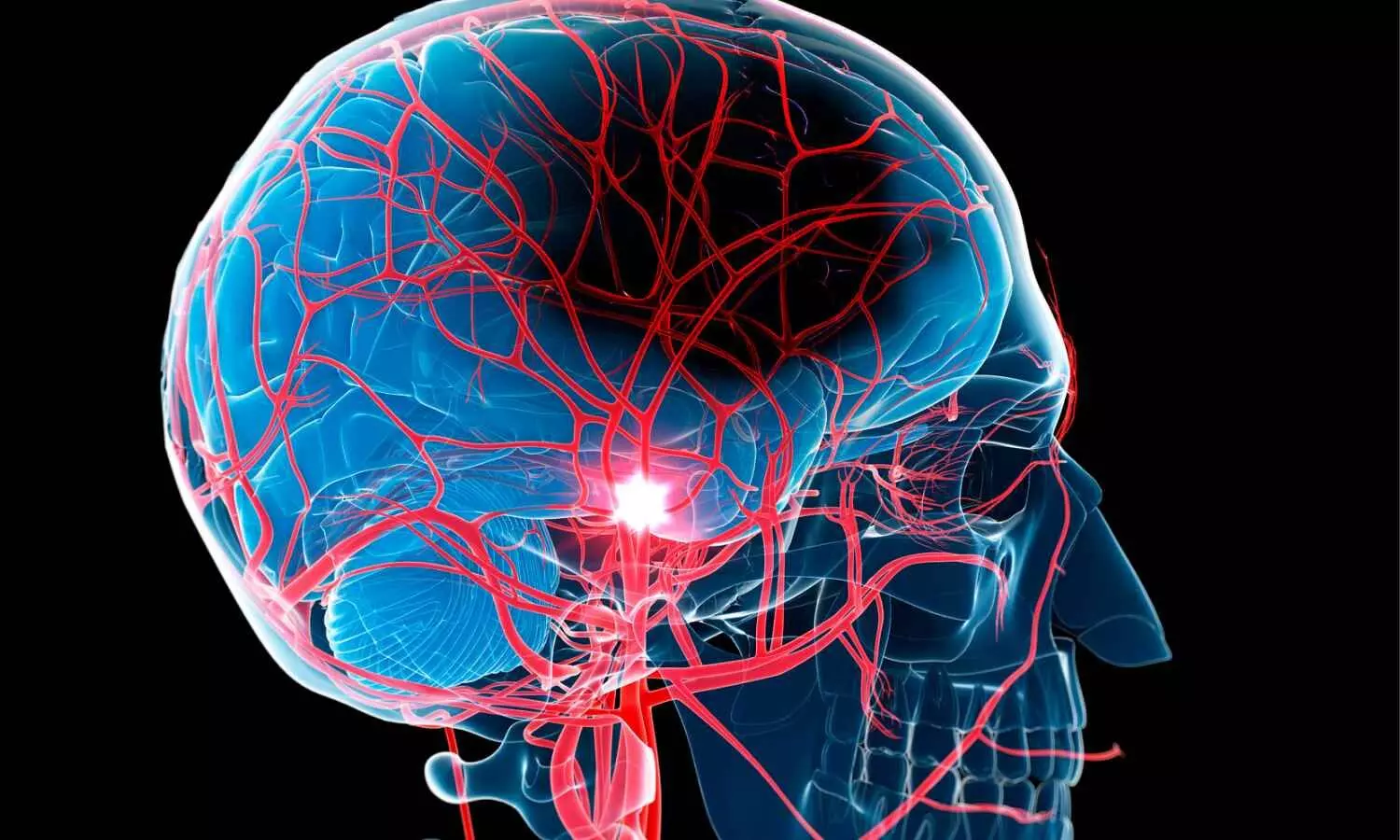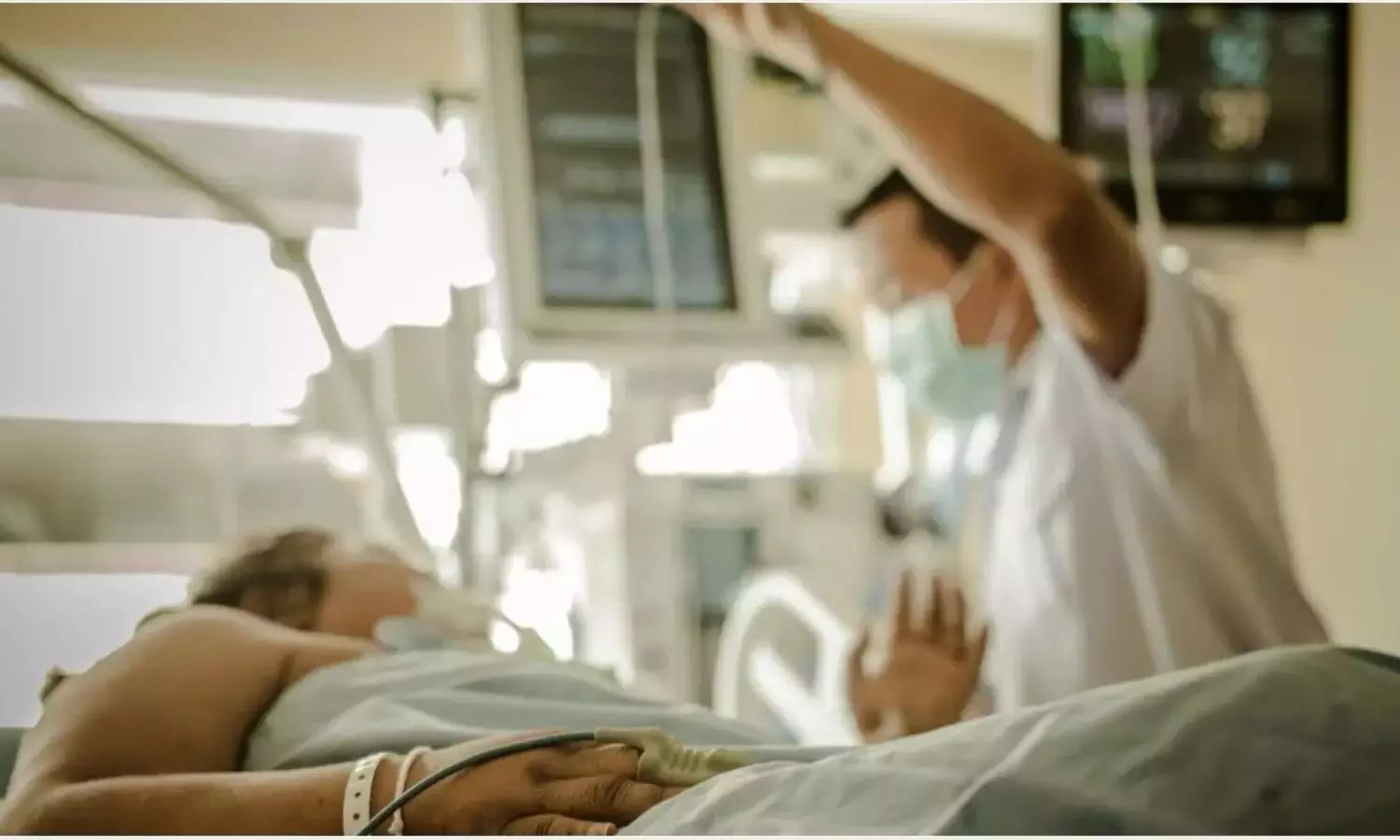Exercise as an anti-aging intervention to avoid detrimental impact of mental fatigue
Powered by WPeMatico
Powered by WPeMatico
Powered by WPeMatico
Powered by WPeMatico
Powered by WPeMatico

Darbepoetin alfa effectively increases
hemoglobin levels and reduces blood transfusion needs among chemotherapy-induced
anemia (CIA) patients, results from the latest Indian retrospective study has revealed.
This study has been published in the January 2025 issue
of Frontiers in Oncology.
Anemia is common in cancer patients, with 39% anemic at
diagnosis and 13% developing it during treatment1.
Cresp contains Darbepoetin alfa; an Erythropoietin
Stimulating Agent of recombinant-DNA origin
This retrospective study included 523 patients with
advanced metastatic solid tumors on palliative myelosuppressive therapy treated
for CIA. These patients had a median age of 55 years; including 50.5% males and
49.5% females. At baseline, 98.5% had Hb levels between 8.0–10.0 g/dL, 1.3%
between 10.0–11.0 g/dL, and one patient had Hb <8 g/dL. Cresp 200 mcg
was administered biweekly, with the number of doses ranging from 4 to 8. The
study measured change in hemoglobin levels as
the primary outcome, and included impact on blood transfusion, anemia-related
symptoms, and occurrence of adverse events as secondary outcomes.
Key results of the study include:
Significant Improvement in Hemoglobin Levels
Patients receiving Cresp showed a mean hemoglobin
increase of 2.28 g/dL from baseline i.e. from 8.56 g/dL to 10.84 g/dL, showing
strong efficacy in anemia correction. The benefit was noted across patients
with breast, gastrointestinal, genitourinary, gynaecological, lung, head and
neck cancers; and across varied chemotherapy regimes
Reduction in Blood Transfusion Dependency
At baseline, 50 patients i.e. 9.6% of patients required
blood transfusions. After treatment with Cresp, blood transfusion was prevented
in 28 out of 50 patients (risk reduction of 56%) Overall, only 5.9% of patients required blood
transfusions during the course of treatment.
Improvement in Anemia-Related Symptoms
Patient-reported outcomes (PROs) revealed a significant
reduction in fatigue and dyspnea
Safety and Tolerability
About 9.5% of patients experienced treatment-emergent
adverse events (TEAEs), with hypertension (5.4%) and deep vein
thrombosis (2.9%) being the most commonly reported.
The study revealed Cresp as an effective and safe treatment
for Chemotherapy-induced anemia (CIA) among Indian cancer patients undergoing
chemotherapy. Treatment with Cresp significantly improved hemoglobin
levels, reduced transfusion needs, and enhanced patient well-being.
References:
1. Kanuri G, Sawhney R, Varghese J, Britto M, Shet A. Iron Deficiency Anemia Coexists with Cancer Related Anemia and Adversely Impacts Quality of Life. PLoS One. 2016 Sep 28;11(9):e0163817. doi: 10.1371/journal.pone.0163817. PMID: 27682226; PMCID: PMC5040456.
2. Chandrakanth M, Agarwala V, Sopory P, Nayak H, Parikh PM, Roy M, De R, Narayan P, Barai AT, Mandal K, Basu M, Kumar S, Uppal RS, Naqvi SMH and Desai R (2025) Cresp®: transforming the landscape of chemotherapy-induced anemia – a comprehensive retrospective real-world analysis in 523 Indian patients. Front. Oncol. 15:1418327. doi: 10.3389/fonc.2025.1418327
Powered by WPeMatico

Bareilly: Chief Minister Yogi Adityanath on Tuesday directed officials to prepare a proposal for the construction of a super-specialty hospital in Bareilly, to be built on the vacant land of the mental hospital, integrating 300 beds.
During the divisional review meeting at the Vikas Bhawan auditorium, the CM directed the officials to submit the proposal to the government, emphasising that this initiative would enhance modern medical facilities in the region.
He also urged public representatives to adopt at least one TB patient each to raise public awareness about the disease. He highlighted the importance of addressing long-pending legal cases, stating that unresolved cases often lead to new crimes. He stressed the need for their swift resolution to maintain law and order, news agency UNI reported.
Reaffirming Bareilly’s status as a Smart City, Yogi directed that all divisional and district-level offices be housed under one roof for better governance. He directed the officials to draft a proposal for this initiative and make necessary arrangements.
Also Read:CM Yogi inaugurates Jhansi’s New Smart City Hospital
To improve crime control and traffic management, he called for the effective implementation of the Intelligent Traffic Management System and mandated the verification of e-rickshaws and taxis.
During the meeting, Divisional Commissioner Saumya Agarwal provided updates on the region’s progress, including completing 25 km of fencing in the Pilibhit Tiger Reserve. She also highlighted that between 2022 and 2024, 12 aspirational development blocks in the division had received recognition from both the central and state Governments.
Reviewing the resolution of revenue cases, the CM reiterated that cases pending for over a year often become flashpoints for disputes, affecting law and order. He directed the officials to expedite their resolution to ensure justice for the common people.
He directed that, as Bareilly serves as the commissionerate headquarters, a comprehensive record of all available government land should be prepared and handed over to the development authority. Besides, he directed that chambers and canteens for lawyers should be kept clean, and a conducive environment should be provided for the public.
Also Read:CM Yogi Inaugurates Sharda Care Health City Super Speciality Hospital
Powered by WPeMatico

Jammu: Dr. Abdul Hamid
Zargar has officially taken over as the Director of Health Services (DHS) Jammu. He was warmly welcomed by the staff upon his arrival at the Directorate, marking the start of his tenure in this esteemed position.
Dr. Zargar completed his
MBBS from Government Medical College (GMC) Srinagar, graduating in the 1983–1989 batch, and later pursued an MS in Surgery from Sher-i-Kashmir Institute of Medical Sciences (SKIMS) Srinagar. With over 15 years of experience in administrative roles, he has held several important positions within the health department.
His career includes
serving as Block Medical Officer from 2011 to 2021, followed by a tenure as
Medical Superintendent at District Hospital Ramban from 2021 to 2022. He
subsequently held the position of Chief Medical Officer in Rajouri (2022-23)
and Doda (2023-24), before taking charge as Medical Superintendent of
Government Hospital Gandhinagar from 2024 until March 2025.
Dr. Zargar stepped into
his new role as Deputy Director, Headquarters, assuming additional
responsibilities as Director of Health Services, Jammu. Director Health Services
Jammu congratulated the doctor while stating that his vast experience and
leadership in various capacities are expected to contribute significantly to
the healthcare sector in the region.
After assuming the charge
of Director Health Services Jammu, Dr. Zargar visited SDH Jagti on 2nd April,
2025 to monitor and assess healthcare services and facilities being provided
to patients. He discussed with Medical Superintendent SDH Jagti in detail about
the routine functioning of the Hospital and asked to put forward various
deficiencies that the hospital is facing in terms of infrastructure and staff strength. He also conducted a detailed round of various sections of the
hospital, including the Emergency Room, indoor wards, various OPD sections, the labour
Room, and the Ayushman Bharat Section. He also interacted with doctors and
paramedical staff and asked them to be patient-friendly and work with
dedication.
Powered by WPeMatico

Bengaluru: Doctors
from the Karnataka Association of Resident Doctors (KARD) have vehemently
opposed the state government’s proposal to extend the retirement age to 65
solely for faculty members in superspecialty departments.
The association expressed
concerns that this move would hinder career advancement opportunities for
younger doctors by prolonging senior faculty tenure, thereby limiting permanent positions.
The retirement age for
faculty is proposed to be increased from 60 to 65 for superspeciality courses, and there has been no permanent recruitment for the last 8 years. However, the association
members pointed out a number of issues related to the decision, including the
capability to handle extreme workloads and long hours of night duties at that
age.
The association is urging
the government to reconsider the proposal and instead focus on increasing
permanent recruitment in superspecialty departments to ensure fair career
growth opportunities for all medical professionals.
Talking to Medical
Dialogues on the condition of anonymity, one of the members of KARD pointed out
that the last round of permanent recruitment in superspecialty departments took
place in 2017. Since then, vacancies have primarily been filled through
contractual appointments, with doctors receiving a fixed monthly salary of Rs 70,000
to Rs 75000. The resident doctors argued that extending retirement age for only
superspecialists would further reduce prospects for younger medical
professionals, who are already struggling to secure stable positions in
government institutions.
“Karnataka medical institutions
produce about 70 to 80 superspecialist graduates every year. Hence,
Karnataka has one of the highest outputs of superspecialists. Nearly 400 to 500 young
superspecialists are all ready to join government service but govt needs to create
more permanent posts so that these people can have their career growth. If the
government go ahead with the proposal without holding any permanent recruitment
drive, it would be an injustice to them,” they claimed.
Powered by WPeMatico

Both the injectable and oral forms of semaglutide, a glucagon-like peptide-1 receptor agonist, have gained recent attention for their effectiveness against weight gain, high blood sugar, and even alcohol cravings.
A new clinical trial, co-led by endocrinologist and diabetes expert John Buse, MD, PhD, and interventional cardiologist Matthew Cavender, MD, MPH, at the UNC School of Medicine has shown that the oral form of semaglutide can significantly reduce cardiovascular events in people with type 2 diabetes, atherosclerotic cardiovascular disease, and/or chronic kidney disease.
“Heart attacks and strokes are among the most common and devastating complications of diabetes,” said Buse, who is the Verne S. Caviness Distinguished Professor of Medicine and Director of the UNC Diabetes Care Center. “Semaglutide has been a main stay of our efforts to reduce heart attack and stroke in people with diabetes. Having an oral option to deliver this highly effective therapy is a big advance.”
John B. Buse, MD, PhD
Results from the rather large, international trial were published in the New England Journal of Medicine and presented at the American College of Cardiology’s Annual Scientific Session & Expo in Chicago, Illinois.
Type 2 diabetes is a progressive disease that affects one’s ability to control blood sugar levels.
People with the condition need to closely monitor their diet and activity and may need to take medications as their blood sugar becomes more difficult to manage. Those with type 2 diabetes are at a significantly higher risk of cardiovascular disease because they may develop high blood pressure, high cholesterol, or both, as a result of uncontrolled blood sugar.
Glucagon-like peptide-1 (GLP-1) receptor agonists, such as semaglutide, have shown much potential for lowering blood sugar, but little is known about whether the oral form of semaglutide actually decreases major cardiovascular events, such as heart attacks and stroke.
The Semaglutide cardiOvascular oUtcomes triaL (SOUL) recruited 9,650 people for the study who have pre-existing cardiovascular disease, such as coronary artery disease, symptomatic peripheral arterial disease, cerebrovascular disease, or chronic kidney disease. The trial was sponsored and funded by pharmaceutical company Novo Nordisk, Inc.
Participants were divided into a placebo group (no medication) and a drug group to see if those taking oral semaglutide were more or less likely to experience major cardiac events. Both groups were given standard-of-care glucose-lowering and cardiovascular risk-reducing therapies according to local guidelines. Those in the medication group took a once-daily 14mg dose of oral semaglutide.
Researchers found that oral semaglutide decreased the risk of major cardiovascular events by 14% compared to placebo across age and gender. Of all types of major cardiac events studied in the clinical trial, nonfatal myocardial infarction saw the greatest reductions in risk.
The effect of oral semaglutide on cardiovascular outcomes was consistent with other clinical trials involving injectable semaglutide, but more trials are needed to determine if one method may be more effective than the other at reducing major cardiovascular events.
References: Authors: Darren K. McGuire, M.D., M.H.Sc., Nikolaus Marx, M.D., Sharon L. Mulvagh, M.D., John E. Deanfield, M.D., Silvio E. Inzucchi, M.D., Rodica Pop-Busui, M.D., Ph.D., Johannes F.E. Mann, M.D., +11 , for the SOUL Study Group*Author Info & Affiliations Published March 29, 2025 DOI: 10.1056/NEJMoa2501006
Powered by WPeMatico

Denmark: A recent randomized controlled trial evaluated the impact of routine thoracentesis in patients with acute heart failure and pleural effusion. Thoracentesis, a procedure to drain excess fluid from the pleural space, has been considered a potential adjunct to standard medical therapy in these patients. However, the study findings suggest that upfront thoracentesis does not significantly improve clinical outcomes compared to standard medical treatment alone.
“For patients with acute heart failure and pleural effusion, routine upfront thoracentesis offered no advantage over standard medical therapy alone in improving clinical outcomes at 90 days,” the researchers reported in Circulation.
Pleural effusion is common in acute heart failure, with large effusions seen in about 20% of cases. Thoracentesis can provide immediate symptom relief but carries risks, and no randomized trials have assessed its benefits in heart-failure-related pleural effusion. With the increasing use of thoracentesis, there is a need for evidence. In the TAP-IT trial, Signe Glargaard, Department of Cardiology, Copenhagen University Hospital–Bispebjerg and Frederiksberg, Denmark, and colleagues examined the impact of adding therapeutic thoracentesis to standard medical therapy in patients with acute heart failure and significant pleural effusion.
For this purpose, the researchers conducted a multicenter, unblinded, randomized controlled trial between August 31, 2021, and March 22, 2024, involving patients with acute heart failure, left ventricular ejection fraction ≤45%, and notable pleural effusion. Those with very large effusions (over two-thirds of the hemithorax) were excluded. Participants were randomly assigned to either upfront ultrasound-guided pleural pigtail catheter thoracentesis with standard medical therapy or standard therapy alone.
The primary outcome was days alive out of the hospital over 90 days, while key secondary outcomes included length of hospital stay and 90-day all-cause mortality, analyzed using the intention-to-treat approach.
The study revealed the following findings:
This trial, the first randomized study on thoracentesis for pleural effusion in heart failure, found that adding routine thoracentesis to standard medical therapy did not improve survival or reduce hospital stays over 90 days. The procedure was safe, with a low complication rate of 1%.
“While variability in outcomes may have affected statistical power, these findings provide a foundation for future research to further explore the role of thoracentesis in managing acute heart failure with pleural effusion,” the authors concluded.
Reference: https://doi.org/10.1161/CIRCULATIONAHA.124.073521
Powered by WPeMatico
